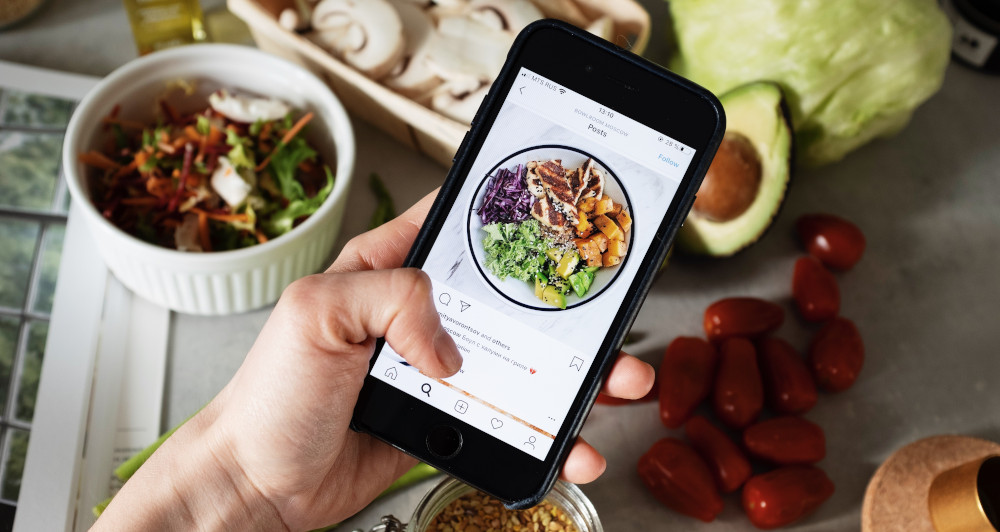During the last 4 years, I’ve had hundreds of calls with nutrition professionals, and because I like to know in advance who am I talking to I google them or search them on Facebook/Instagram before the call.
Some nutrition professionals are very easy to be found while others (more than 50%) keep a low profile. I had problems choosing the right “Jane Smith” from the long list of results returned by Facebook and none of them offered me any clue about being a dietitian, nutritionist, or nutrition coach.
If it was hard for me, working with the internet for 20+ years, imagine how hard it is for an average person to find you online.
Before going forward, please check this article: “How to start an online nutrition coaching business in 10 steps” and “How to start working remotely as a dietitian nutritionist“
How to be brandable
As a dietitian, nutritionist, or nutrition coach, your name is the most important brand you can build. Some professionals choose to work under a brand but it is much harder to remember a brand at this level than the name of the person behind the brand. It makes more sense to build a brand later if you want to expand and to have a team of nutritionists/dietitians you hire and manage. Your name can also be your brand.
Ideally, when someone searches for your name, they would find you right away, especially if they add a descriptive word like “dietitian” or “nutritionist”.
Let’s take a fictitious name of Jane Smith and start from scratch to create her brand.
Create a website for your practice
Jane needs a website but instead of using her name in the domain (even though that would be the ideal setup – something like “janesmithdietitian.com”), she wants to build her brand (to make things more complicated and funny.
She goes online and finds a domain she likes, “thatnutritionexpert.com”. She quickly buys it and creates a website using only the brand “That Nutrition Expert”.
It’s not too long since she realizes nobody would find her online because she has not used her name anywhere and because she speaks at a few events and people are trying to find her online by searching for her name.
Then she changes the website – she keeps the brand and the domain but she adds on the homepage her name along with an “about me” section.
Here is what exactly she did:
- Added her name in the title/heading of the page. Instead of “That Nutrition Expert” not it is “Jane Smith Nutritionist Dietitian – That Nutrition Expert”.
- She added the same thing in the meta title and meta description of the page (another article will come about search engine optimization).
- She adds a picture of herself on the homepage where the file is called jane-smith-nutritionist-dietitian.jpg and adds the text “Jane Smith Nutritionist Dietitian” as an alternate text for that image.
- The about me section is a short description of the services she provides. Everything that is written is about the visitor – how the visitors can achieve their objectives with her help.
- Her name is also mentioned several times on the page.
Now people can find her much easier when they search for “jane smith nutritionist” or “jane smith dietitian”. It would have been easier to just find her by name if the name was not pretty common.
Google My Business
Let’s continue with Jane as an example.
What if she already has an office where she meets her clients or even a clinic? Wouldn’t it be nice if she would show up whenever someone searches for “dietitian around me” or “dietitians in Denver, CO” assuming her clinic is in Denver?

Then Google My Business comes into place. She creates a profile for her business making sure she is also using her name and “nutritionist dietitian” in the description of the business, she adds the working hours, pricing range, and her office address so she can show up on the map.
And that’s for free! She doesn’t have to pay a dime. Now even the clients coming to her office can just search her on the map and drive there.
Create a Facebook page
Facebook is a social network, not a search engine, but might be one of the most searched websites in the world.
The more you post quality content there, the more you expose yourself to the world. And that’s a good thing because you can use it to attract customers.

Jane has two options for her presence on Facebook:
- Create a fan page. Fan pages can have an unlimited number of followers. The downside of this: only about 10% of your posts will be seen by her followers.
- Create an account or use her personal account. The upside of this is that every post you share will reach all your friends’ feeds. The downside – you can have only 5000 friends. After you reach that number you can’t accept any more friends.
However, she can start with her personal account then convert it into a business page without losing anything when she reaches 5000 friends.
But what name should she use? Following the same logic, she can use the brand name to get a customized URL, like facebook.com/thatnutritionexpert but use her brand + her name as the name of the profile/company. She can also use the words “nutritionist dietitian” just to make it easier for people to find her and also to create a context for her followers.
She will then start posting at least once per week quality content to keep the audience engaged and will respond to all comments. She will also have a good quality profile image and will make sure to remind her audience about her services from time to time (80% education, 20% promotion).
Jane should also add a link to her website in the description of her profile.
Create an Instagram profile
That’s Facebook’s more visual and younger sister. Anything that was written for Facebook can be applied here as well with a few exceptions.
Instead of creating a page, Jane needs to create a business account.

Instead of sharing everything she wants, she is limited to only pictures and videos. She can’t add links to her website, with one exception – she can add a link in her bio along with a description of her services and how she can help her audience.
Depending on who she targets, she might want to set up a LinkedIn profile for herself (not as a company) and add some titles like MS = Masters of Science, RD = Registered Dietitian, LD = Licensed Dietitian, or any other title, depending on her country or state.
Her profile should contain all the schools she graduated from and her entire work experience.
Youtube
Whenever you search for something online you might see some video results returned by Google. That’s because Google has matched some videos with your name.
Youtube has become one of the most searched sites, even though it is not technically a search engine, and because it is owned by Google it is very important to be found there.
Jane might want to produce her own content and start her Youtube channel or she might just appear on some TV shows or podcasts that are uploaded on Youtube. Her videos will show up when someone searches for her name, especially if it appears in the title of some videos.
Isn’t Twitter just for politicians? Maybe, but if you think your audience might be on Twitter, it might be worth having an account there using the same principles presented here and share something from time to time.
Takeaways
Does it sound overwhelming? It might be if you want to master all the channels but you don’t have to be present or active on all of them.
You are safe if you go just with a good website and an interactive Facebook/Instagram page.
The best part is that you can do some automation so that your images and videos posted on Instagram can also be posted on your page (that’s a functionality inside Instagram) or even on other channels like Twitter using automation tools like Zapier.
Our next article will talk about how to create a website that sells as a dietitian, nutritionist, nutrition coach, or nutrition clinic so stay tuned.
What is the biggest issue you are facing regarding your online presence as a nutrition professional?
